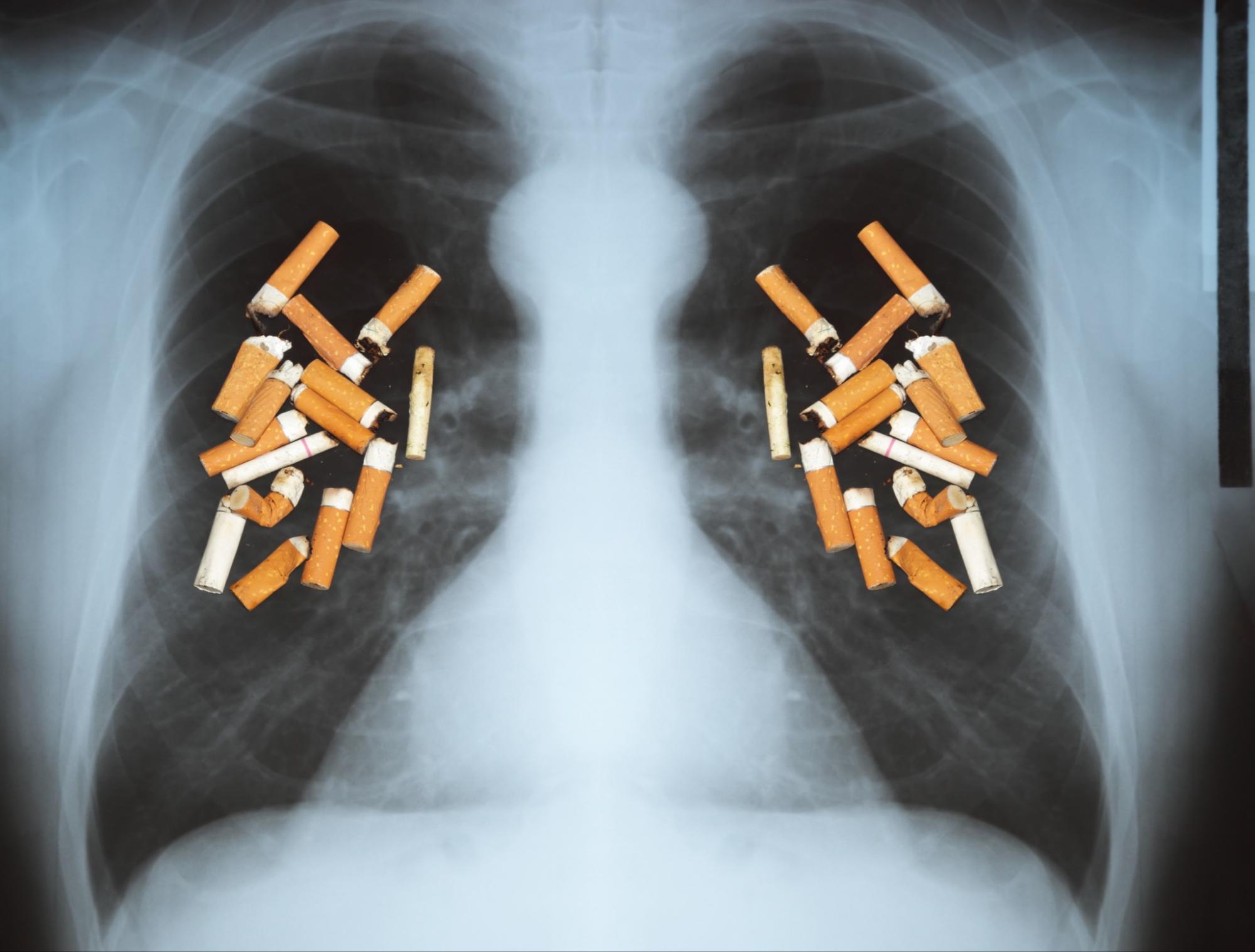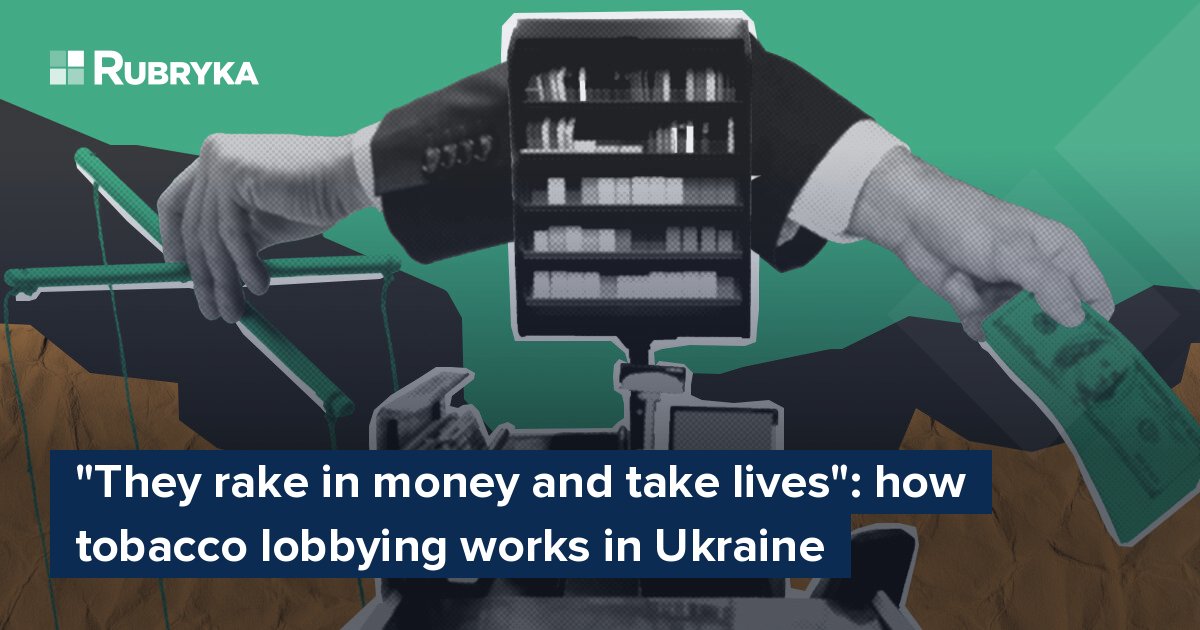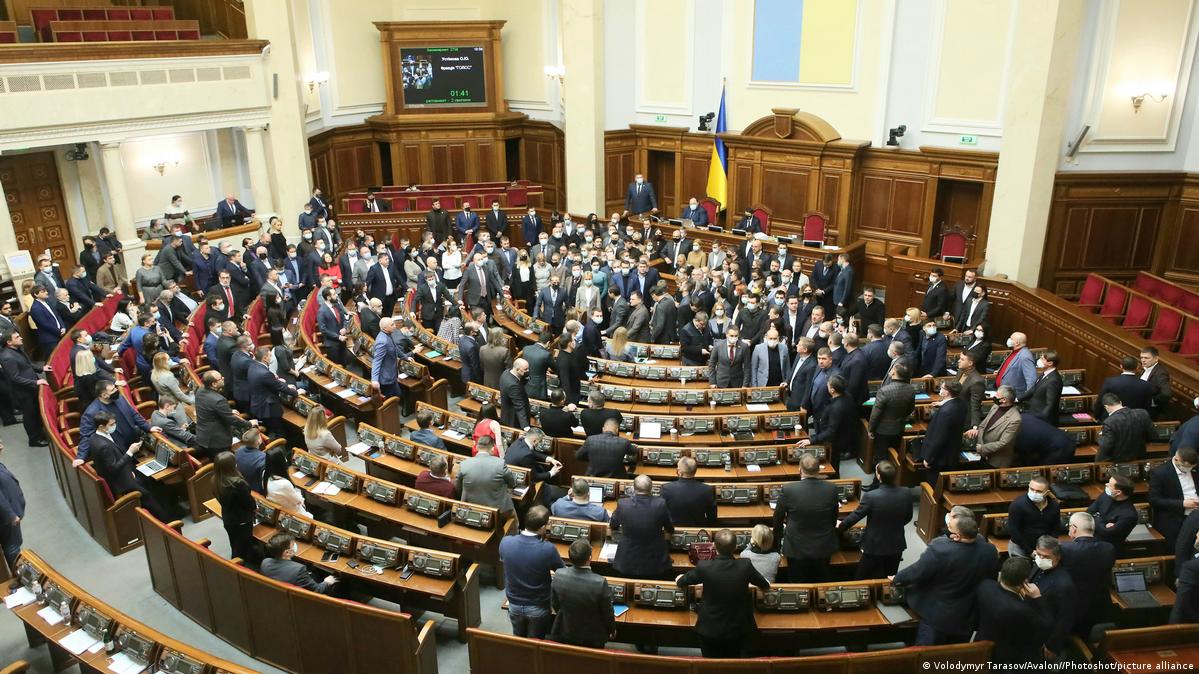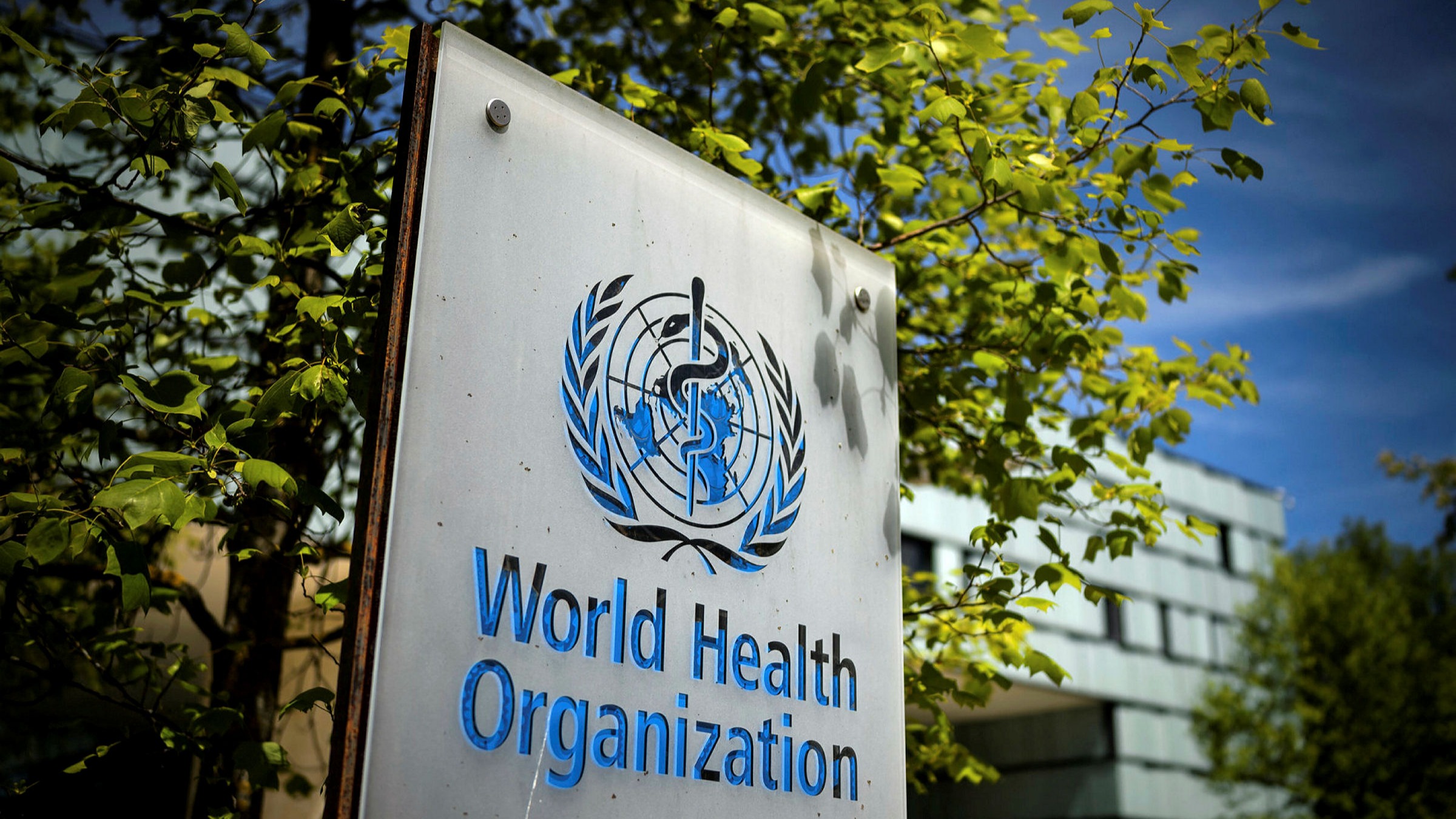
What is the problem?
Four multinational corporations worldwide produce tobacco products: Philip Morris International, British American Tobacco, Japan Tobacco International, and Imperial Tobacco. They are also represented in Ukraine. In addition, we have two more local factories specializing in tobacco.
"All these transnational and local corporations compete on the shelf, but not in promoting their interests. They are monolithic and advocate the possibility of having a variety of marketing and other tools to attract children and young people to smoking," says the executive director of the Zhyttia public organization, Dmytro Kupyra. "I emphasize this because the tobacco corporations themselves say their strategies aim to attract children and young people."
According to Dmytro Kupyra, the American company Philip Morris, which sells its products in more than 180 countries, says: "Today's teenager is our potential customer tomorrow."
"The vast majority of smokers started smoking when they were still teenagers"

"Another industry tool is displaying tobacco products at retail outlets. British American Tobacco's internal documents state that eye level is the purchase level of the product. In Ukraine, companies use the entire arsenal of influence—legal and illegal—to attract consumers. In particular, we are talking about tax or marketing preferences," Dmytro Kupyra explains.
At the same time, the expert says Ukraine continues to move towards a smoke-free country, where the population is protected from the harm of tobacco and nicotine.
"Every year, the world counts a global index of tobacco industry intervention (in health care policy — ed.): Ukraine ranks 52nd out of 80 countries. Out of a hundred possible points, we have 64. The more points, the worse the situation with the tobacco industry's interference is. By the way, Switzerland and Japan experience some of the highest levels of tobacco industry interference in public policy. There, representatives of tobacco companies simply sit at the same table with government officials and discuss how to develop tobacco policy. Within the countries with strict legislation, the tobacco industry, even with great freedom of action, for some reason does not promote its policy as aggressively as in countries where the level of its development is lower. So they see Ukraine exactly like that, and they are interested in our market," says the executive director of the NGO Zhyttia Dmytro Kupyra.
It is worth mentioning that with 64 points in the 2020 Global Index of Tobacco Industry Intervention in 2021, Ukraine earned 68 points in 2020.
"It seems that 4 points are a small difference, but they have become decisive for Ukraine. We had 68 points during the previous convocation of the parliament, which failed to pass a single non-price anti-tobacco decision, Dmytro continues. "Yes, they introduced a 7-year plan to increase the excise tax on tobacco products. But that's all because the tobacco industry was able to come to an agreement with the previous government."
How does tobacco lobbying work?
Tobacco lobbying aims to preserve and develop opportunities for tobacco companies to distribute their products.
"They use various tools to block initiatives that would help reduce the prevalence of smoking. This is both discrediting anti-tobacco initiatives and their leaders in the media and creating propaganda with the example of russia. When children are attracted to smoking by having young people in advertisements, they create a parallel reality and mislead society," Dmytro explains.
According to the expert, the parliamentary struggle is also used to block anti-tobacco initiatives:
"It is about submitting alternative draft laws. For example, five alternative options were submitted to the adopted anti-tobacco bill. One should understand that few draft laws have such a large number of alternative options. This means that it was important for opponents of the law to fight and try to block such initiatives. One of the combat options can be 'amendment spam.' Again, going back to the anti-tobacco law, more than 500 amendments were filed, most of which simply changed the order of words in the bill's sentences. However, some aimed to weaken anti-tobacco legislation. Fortunately, the deputies of the National Health Committee did not do this and, in fact, proposed a good anti-tobacco law to the parliament."
People's deputy from the Servant of the People party, and deputy chairman of the Ukrainian parliament's Committee on Transport and Infrastructure, Volodymyr Kreidenko, was a co-author of draft law No. 2813, which was initiated by parliamentarians at the beginning of 2020. In particular, it also provided for introducing standardized packaging of tobacco products. The MPs proposed that the standardized packaging should be a uniform dark olive color with large illustrated warnings about the dangers of smoking, without logos and images of tobacco brands or other information on the packaging, and that all trade and product names should be in a uniform color, font, and format. However, the tobacco industry has turned on its lobbying levers.
"Under the tobacco industry's influence, draft laws were almost immediately registered to restrain our draft law. Some of them even softened the existing anti-tobacco legislation. Due to a large number of registered legislative initiatives, the specialized Committee on Public Health, Medical Assistance, and Medical Insurance was forced to reject and withdraw from consideration all draft laws, including ours, and to create a working group to discuss the positions of all interested parties," says People's Deputy Volodymyr Kreidenko.
Based on the work of this Group, a compromise version of draft law No. 4358 was developed and finally adopted by the Ukrainian parliament, Verkhovna Rada, last December.
"However, unfortunately, the final version of the anti-tobacco draft law no longer had the regulations on standardized packaging and the prohibition of advertising display of tobacco products in places of retail, which were prescribed from the beginning in draft law No.2813 of our colleagues," says Volodymyr Kreidenko.
Dmytro Kupyra also talks about cases when people's deputies openly declared meetings with tobacco companies and interactions with them:
"There are so-called 'pretty boys' in the tobacco industry. For example, Marian Zablotskyi, before becoming a parliamentarian, worked in the Ukrainian Society of Economic Freedoms public organization, which received $427,000 from Philip Morris during 2017 and 2019. He is currently a member of the Committee on Finance, Tax, and Customs Policy.
Another deputy is Yevhen Petruniak. He also regularly submits proposals in the interests of the tobacco industry. He proposes to return smoking in restaurants, and several times, he has proposed to reduce excise taxes on tobacco products. In particular, one of his proposals to postpone introducing excise taxes on cigars and heated tobacco devices cost the budget at least UAH 1.5 billion.
I would also like to mention the people's deputy, oleksii kovalev, who is now a deceased russian collaborator. He was also a member of the Finance Committee, and among his assistants was a lady who then headed the Ukrainian Association of Tobacco Manufacturers Ukrtiutiun, Valentyna Khomenko. Unfortunately, Ukrtiutiun still exists and continues to kill thousands of Ukrainians while promoting its products.
In the last convocation, the 'star' was Nina Yuzhanina. She was, in fact, the face and key person who blocked the adoption of any anti-tobacco decisions in the last convocation of the Verkhovna Rada.
And also, Mr. Davyd Arakhamia, who, on the one hand, initiated the submission of excise amendments, which provided for a 30% reduction in the excise tax on heating cigarettes, but on the other hand, he said that the tobacco industry misled him. Like, he was assured that if the excise tax is not reduced, then an illegal market for heating cigarettes would appear in Ukraine, and there would be non-compliance with the budget. That is, the tobacco industry misled the head of the parliament's majority faction. Ukraine almost lost 3 billion hryvnias, which would have gone to the accounts of tobacco companies. Thanks to the parliamentarians, the public, and the media's attention, this amendment was rejected."
The head of the board at the Anti-corruption Staff public organization, and the deputy head of the Public Council at the National Agency for Prevention of Corruption, Serhii Mytkalyk, recalls two vivid cases of parliamentary lobbying in favor of tobacco corporations that happened in the last two years.
"The first is directly related to Arakhamia's amendment. Because of it, the state could not receive three billion hryvnias for the state budget. The second is the efforts of deputies to make amendments to non-core laws, which, for example, expand the list of places for smoking. In the summer, two deputies introduced a non-core bill amendment to expand smoking areas. We are talking about hotels, airports, train stations, including restaurants. Deputies from the Servant of the People party, Oleksandr Sanchenko and Ihor Fris, were involved in promoting these amendments. In my opinion, these actions have signs of a conflict of interest. The family of Ihor Fris owns a chain of restaurants and cafe bars, including hookah bars. Therefore, it was beneficial for him to introduce this amendment. We sent an appeal to the National Agency for Prevention of Corruption and received a reply that an investigation is currently being conducted on this fact," says Serhii Mytkalyk.
Deputy chairman of the parliament's Committee on Transport and Infrastructure, from the Servant of the People party, Volodymyr Kreidenko, emphasizes that when some lobbyists try to push tobacco amendments into various draft laws, some deputies try to prevent this.
"For example, recently, such tobacco amendments were hidden in the draft law 'on the peculiarities of the legal protection of geographical indications for agricultural products and food products,' which is a gross violation of the Regulations of the Verkhovna Rada because this is absolutely not a profile draft law. Together with our colleagues, we drew attention to this and prevented the inclusion of these amendments in the final version of the adopted law," the People's Deputy adds.
What is the solution?
How to distinguish a tobacco lobbyist?
The public has developed several tools to do this.
- First. The Golden Scythe anti-award. It has been periodically "handed" to lobbyists of tobacco companies in power since former pro-russian president Yanukovych's time.
"Scythe symbolizes tobacco lobbyists taking lives while raking in the money. The consequence of their actions is that the tobacco industry will continue to have the tools to attract children and young people to smoking, " says the director of the NGO Zhyttia Dmytro Kupyra.
- Second. Tobacco lobbyists talk about the mythical interest of the business.
"They talk about paying taxes without mentioning that tobacco companies pay a meager amount of income tax. And the taxes that are largely paid are the excise tax," Dmytro explains.
- Third. Tobacco lobbyists often propose ineffective steps.
"There is even a test called the 'Scream Test': if an anti-tobacco regulation is proposed and the tobacco industry screams about it, it means that the regulation is effective. If the tobacco industry is silent, this implementation will most likely be ineffective," says Dmytro Kupyra.

How to fight tobacco lobbying?
Publicly advocated changes to anti-tobacco legislation were based on two important documents.
"The first is the WHO Framework Convention on Tobacco Control (ratified by Ukraine and covers all tobacco control issues). The second, narrower but also mandatory, is the European Union directive 2014/40/EU, which provides for medical warnings on cigarettes, a ban on flavored cigarettes, requirements for the technical parameters of electronic smoking devices, and a ban on their advertising. In the EU, this directive entered into force in 2015," says Dmytro Kupyra.
What went wrong?
"We proposed to the parliament of the previous convocation to adopt this directive. Instead, Nina Yuzhanina, the head of the tax committee at the time, rejected such a proposal and submitted an alternative draft law to implement the outdated anti-tobacco directive that was repealed in the EU. In fact, it weakened Ukrainian anti-tobacco legislation. I am convinced that this happened because of tobacco lobbying carried out on parliamentarians of the previous convocation.
And he recalls another case when there were not enough votes for the anti-tobacco draft law to be voted on: "The parliament was considering introducing a ban on the advertising display of tobacco products in places of sale, draft law 4030А. And again, the same Nina Yuzhanina spoke against it during its consideration directly in the meeting hall. In the end, the bill did not receive enough votes. Even though such regulation was supported and is supported by more than 80% of citizens."
Where to find key anti-tobacco regulations?
The WHO Framework Convention on Tobacco Control and its guidelines make it clear that the state must protect its policies from interference by the tobacco industry. There is an irreconcilable conflict between the interests of the tobacco industry, which sells a deliberately unhealthy product, and public health, which wants people to live as long as possible and be as healthy as possible.
How does it work?
The parliament of this convocation adopted the comprehensive anti-tobacco Law No. 1978, which made it possible to significantly improve the situation in the fight against smoking.
"The adopted changes are already felt by society today. A medical warning has already appeared on electronic cigarettes, which has not been the case for ten years."
"And the second thing that has already worked is that smoking cigarettes with tobacco heating devices is prohibited in all public spaces and workplaces on the same level as tobacco products, electronic cigarettes, and hookahs, " says Dmytro Kupyra.
Still to come:
- Banning flavored cigarettes and liquids for e-cigarettes;
- Increasing the medical warning on tobacco products to the European standard (65% of the packaging area);
- Prohibiting the advertising of electronic cigarettes and heated tobacco devices.
Currently, tobacco manufacturers use the entire arsenal of marketing technologies to attract children and young people to start smoking. This year, such an advertising campaign took on an even more aggressive form because this is the last year of open advertising of their products, Dmytro Kupyra believes.
Another victory, which some people's deputies opposed, was the introduction of excise taxes on cigarettes for heated tobacco.
In 2021, the Parliament of Ukraine harmonized this excise tax to the level of ordinary cigarettes. Previously, it was 34 kopiikas for one heating cigarette and 1.2 hryvnias for a regular cigarette. The parliamentarians eliminated this tax preference and equalized the excise tax. According to anti-smoking campaigners, this was the right decision, providing additional revenues to the budget. Although the tobacco industry fiercely opposed it, thanks to this decision, revenues from excise taxes on heated tobacco cigarettes increased from UAH 1.7 billion in 2020 to UAH 10.2 billion in 2021.
"It was a case where the tobacco industry tried extremely hard to interfere in health care policy, state policy regarding excise taxes on a specific tobacco product, but the parliament showed a statesmanlike position and defended its decision," says Dmytro Kupyra. "Another vivid example of the intervention of tobacco industry representatives in politics was an attempt to return smoking to restaurants and other workplaces. This happened in the fall, but thanks to the reaction of civil society and parliamentarians, the parliament rejected this proposal and demonstrated: Ukraine is free from tobacco and is moving towards making Ukrainians healthy and free from nicotine addiction."

Even more helpful solutions!
Ukraine has international obligations regulating state bodies' communication with tobacco companies.
"We are talking about two laws. The first is the WHO Framework Convention on Tobacco Control, which stipulates that states must protect their policies from interference by the tobacco industry. The second is the Law on measures to prevent and reduce the use of tobacco products and their harmful effects on the population's health. It deals with the main principles of state policy on reducing the use of tobacco products and their harmful effects on the population's health. In particular, the Law provides for the participation of individuals and associations of citizens, whose activities are not related to the tobacco industry, in forming this policy," says the executive director of the NGO Zhyttia.
Dmytro Kupyra also emphasizes the importance of a priority health care policy compared with the financial, tax, and corporate interests of business entities related to the tobacco industry.
"For example, a civil servant or politician receives a document or a proposal for tobacco-related changes. He must pay attention to the principle of state policy on preventing and reducing the use of tobacco products prescribed by the Law of Ukraine. If the initiative gives any preference or deterioration, they must reject it: the law prioritizes the public health of Ukrainians, not the interests of tobacco companies. We are not idealists and understand that some officials and politicians do not listen to this. But it is the duty of civil servants to act following these principles. So when someone does not follow them, we, the public, necessarily expose them," says the expert.
According to Dmytro Kupyra, MPs still didn't manage to vote on introducing standardized packaging for tobacco products: the tobacco industry's interference is most extraordinary.
"Proposals regarding a standardized pack of cigarettes were submitted to the parliament, but they were not considered as part of the adoption of a comprehensive anti-tobacco law. The same applies to the visible placement of tobacco products at retail points. Blocking is essential to protect children's health from the effects of smoking, but there is still no political will to make this decision. I am convinced that we will do it in the future because we have to protect the health of Ukrainians."
Even more helpful solutions!
The ratified WHO Framework Convention on Tobacco Control helps Ukraine fight tobacco lobbying.
"The dependence of Ukrainians on tobacco remains high, so these products are trendy among consumers. But Ukraine's policy should be aimed at reducing this indicator step by step and eventually eliminating tobacco products as the one that kills 130 thousand people in Ukraine every year. Government officials should communicate with the tobacco industry only if they need to obtain certain information that, let's say, cannot be obtained from other sources," says Dmytro Kupyra. "We can also introduce the following requirement for civil servants: to include an item about where a person has worked for the last five years in the declarations of employees. And if they were connected with the tobacco industry during these years, they should be automatically banned from holding positions that intersect with the industry in the professional field.
Another critical component is that there should be a system where government officials announce and report on meetings with the tobacco industry. If you want to meet with its representatives, inform which issue is on the agenda and report on the results achieved or the topics discussed."









